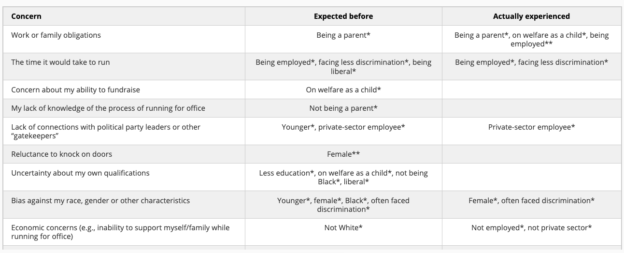- Facebook25
- Threads
- Bluesky
- Total 25
Last spring, I noted that my own predictions for US politics had been badly wrong. I doubt that anyone was interested in the reliability of my crystal ball, but it can be useful to lay out one’s own expectations, test them against reality as events unfold, and then reflect on why you were right or wrong.
In that spirit, I currently expect Republicans to win the House–and quite likely the Senate–and to sweep more really extreme characters into state and federal office. I think the outlines of current federal policy will then remain basically unchanged, because Biden will be able to veto Republican bills, and the House GOP has a poor recent record of even mustering the votes on its own side. There may, however, be hair-raising showdowns over the debt limit and annual must-pass appropriations.
State policies will vary, with red states and blue states heading in opposite directions on abortion, policing, climate, education, and other key issues.
The Supreme Court will probably ban the use of race as a consideration in university admissions. That will not only have a major impact on who attends college (which is the main issue) but will also begin a deluge of litigation to investigate and alter pervasive practices within higher education. Documents will be subpoenaed; people will be deposed.
The Supreme may also gut the Clean Water Act and could decide Moore v. Harper in a way that allows legislatures to override the’ decisions in presidential elections, which would throw the 2024 election into grave question.
We are headed into a recession. That will cause social needs and dissatisfaction to rise and tax revenues to fall.
The probability of an international crisis is reasonably high, not only in Ukraine/Russia but also China/Taiwan and Iran. Justice may prevail in each of those cases, but the risks to the people of those regions and the world are serious.
At home, we will see more frequent acts of overt political violence and perhaps some really major politically motivated crimes.
Trump will be running for president, first unofficially and then as a declared candidate. He will easily dominate the GOP primary. Meanwhile, there is a substantial probability that he will face at least one criminal proceeding. He will use his prosecution as evidence of persecution by his political enemies.
Echoing the Clinton and Obama years, the new Republican majority will grow rapidly unpopular. Biden’s popularity will be suppressed by the recession but boosted by his opponents: Trump and the Hill GOP. Democrats will help to amplify the most extreme Republican voices. Biden will poll ahead of Trump through most of the 2024 election season, but there will be a real possibility that state legislatures and the US House will overrule the voters, especially if the Supreme Court exempts legislatures from judicial review regarding elections. Certainly, Trump will pre-announce that he cannot possibly lose, and a fair number of Republicans will echo that claim. I believe there would be resistance within the GOP, but that would be an intra-party struggle that would make everyone else into bystanders.
(By the way, if I did the math right, then according to the Social Security Administration’s actuarial tables, there’s a 73% chance that both Biden and Trump will still be alive in 2025, and a lower chance that both men will be healthy enough to serve.)
My predictions may be too pessimistic. Last time, I was overly positive. Regardless of how things play out, I’d offer two thoughts about addressing our situation.
First, a lot more Americans should be learning specific skills for organized nonviolent civil resistance. I am not arguing that nonviolence is morally superior or preferable in all situations. I do believe that only large-scale movements that are predominantly nonviolent will be relevant and plausibly effective in defense of democracy in the United States at this point. Here are few resources for learning. I am actually quite optimistic that the American people will prove hard to dominate and will resist effectively, but skills will help.
Second, we may have opportunities to build a better system, not merely preserve a flawed one. For instance, the Supreme Court has already played a problematic role in our government, and a crisis may be an opportunity for basic reform.
To take one example of a very bad-case scenario: Biden actually wins more Electoral College votes than Trump does in 2024, but several state legislatures award their votes to Trump, and the House certifies him as the president. That would be the beginning, not the end, of a chapter in American democracy. The end would depend on us.
See also: how I misjudged our moment; time again for civic courage; how to respond, revisited; reforms for a broken Supreme Court; etc.
